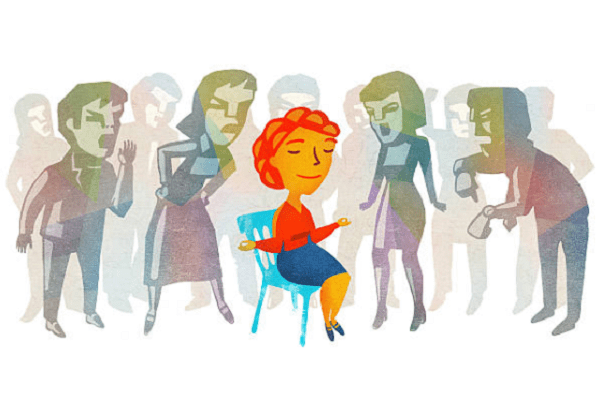My own psychologist >>>> Resistance to stress is a useful quality
Resistance to stress is a useful quality.

Resistance to stress is becoming more and more important in a life full of problems, when you need to quickly mobilize in front of an inevitably lump of troubles approaching a person and resist, survive problems, and remain a healthy and successful person. Resistance to stress is a useful personality trait, but not many can boast of this quality as an innate feature of the body, although most people could develop a group of qualities that fit the definition of “stress resistance”.
Usually, stress resistance is understood as a set of such characteristics of a person's character that allow him, in conditions of intellectual, physical or nervous stress, to remain calm, not to lose composure, not to include emotions and not to waste his health and the health of people around him when solving current problems of any degree of complexity. In fact, reduced sensitivity to environmental irritants is the essence of resistance to stress.
In order to develop stress resistance and not turn into a callous, indifferent, low-emotional person, it is necessary to be aware of where and to what extent it is necessary to demonstrate resistance to stress, and when these qualities do not make sense.
Resistance to stress, that is, endurance and low-emotional behavior are appropriate at work for hire and when running your own business. But if you apply these qualities in the environment of close people, it may turn out that the troubles and joys of these people have become indifferent to you, you will not be able to empathize with them, rejoice and resent them in situations appropriate for the manifestation of such emotions and gradually move away from family members and friends. Therefore, while tempering your personal qualities, do not overdo it.
What techniques of resistance to stress do you need to know in order to endure the hardships of life with dignity?
- First, you need to be able to quickly navigate in a stressful situation that has arisen and to measure your actions with your ability to overcome difficulties that have arisen. If you feel that the problem is beyond your strength, do not tackle it or solve it gradually (in parts).
- Secondly, it makes sense to learn how to protect your psyche from extraneous traumatic (in every sense) actions. You can defend in different ways: clearly formulate a refusal, tactfully get away from coercion into action, fence off with indifference.
- Thirdly, it will not hurt to learn how to quickly and painlessly adjust to changes. The longer the period of time during which a person is able to get used to changes in life without nervous tension, the more the nervous system suffers during a series of unpleasant events that hit a person in a short period of time. The person does not have time to rebuild, loses self-control and breaks down.
- Fourthly, it is necessary to learn not only to quickly mobilize, but also to relax quickly, for this it is necessary to periodically give the nervous system a break, not to do things (including hobbies) that require willpower. Efforts of will keep the nervous system in constant readiness, and this can turn into a nervous breakdown at the most inopportune moment in life.
- Fifth, if a person cannot overcome current difficulties, this is not yet a reason for anxiety and nervousness. Perhaps the situation accompanying difficulties is not favorable for a person at the moment, but everything can change after some time. We must learn to wait for the right moment and use it to solve accumulated problems.

Read

Read



























